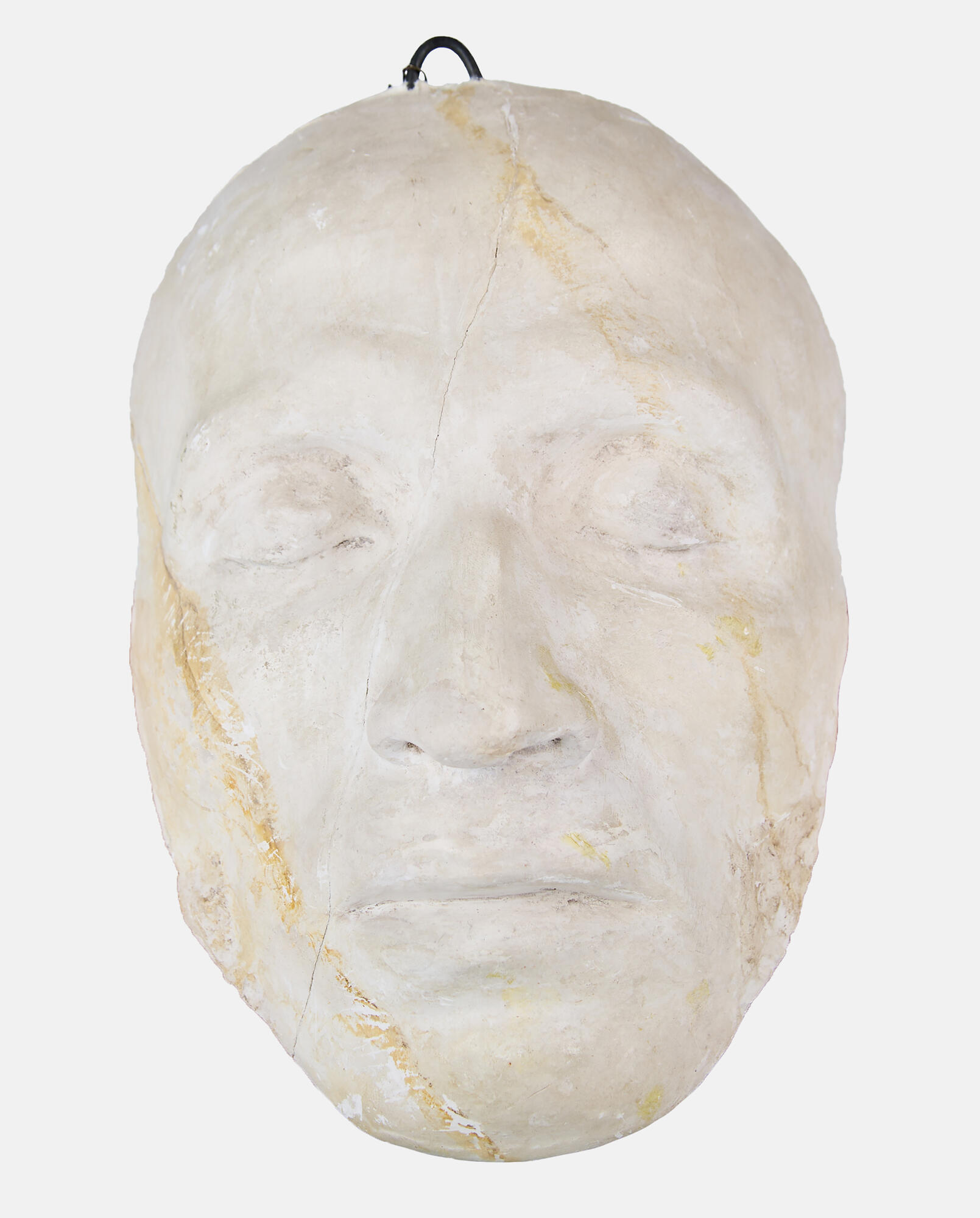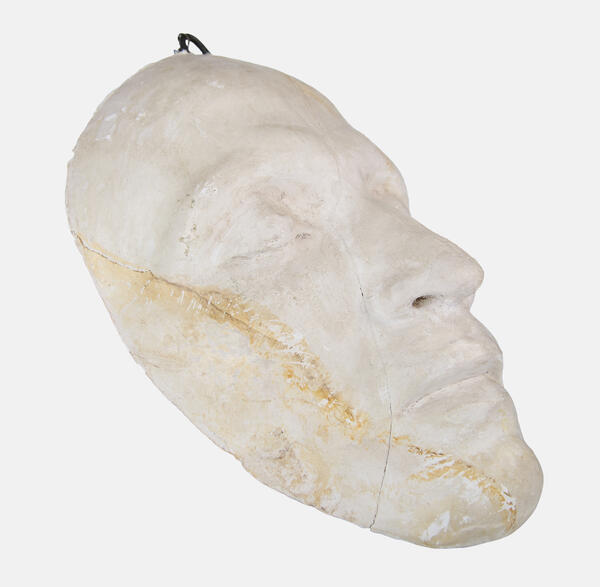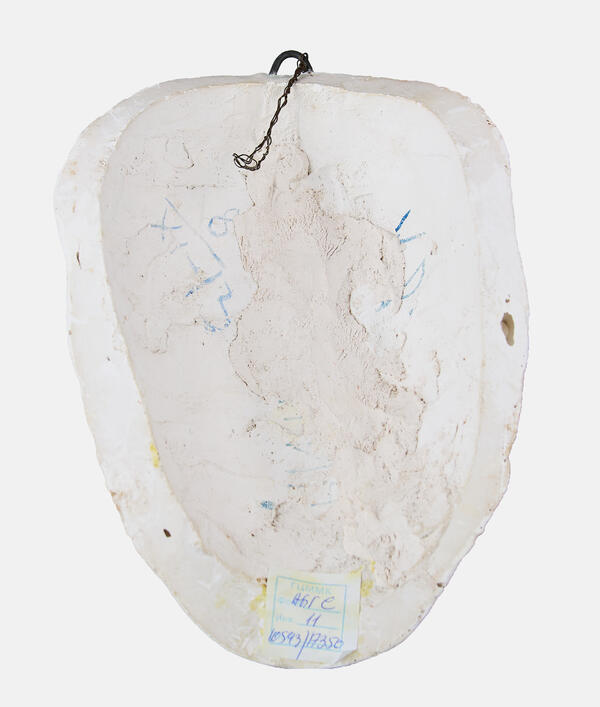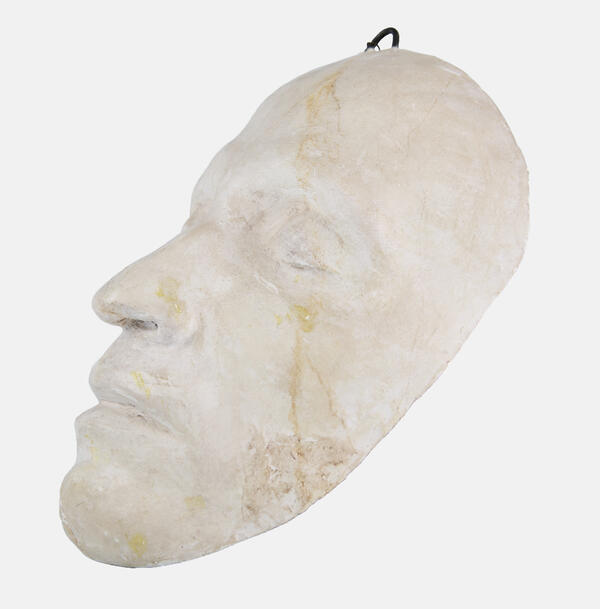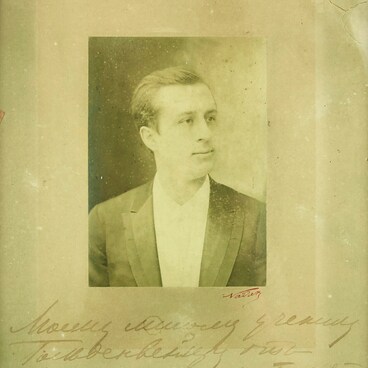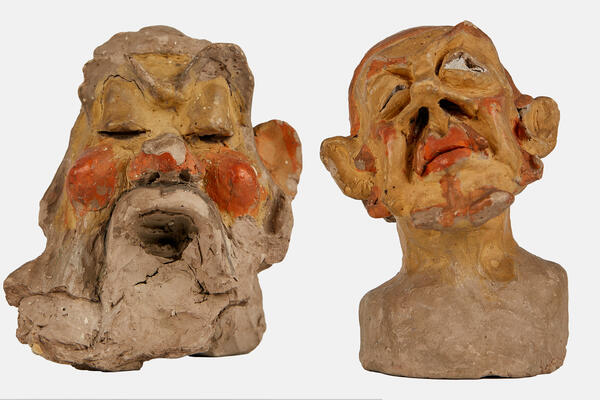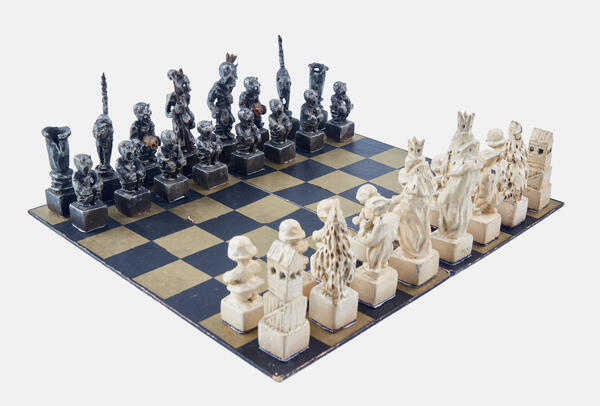The office of Alexander Borisovich Goldenweiser has a view of the monument in tribute to the great Russian poet — Alexander Sergeyevich Pushkin. All his life Goldenweiser kept exploring the Pushkin theme. There is an entry in the diary of the eighteen-year-old Goldenweiser, “Why do I love poetry, life so much? I am ready to sacrifice myself for Pushkin… I now solemnly declare to myself that when I grow cold towards Pushkin, I will lose everything that is good in me.”
In the office there is a copy of Pushkin’s death mask, which Vasily Andreyevich Zhukovsky ordered in St. Petersburg on January 29 (old style), 1837, from the well-known sculptor Samuil Ivanovich Galberg and the molding master Polievkt Balin. Zhukovsky sent the masks of the first cast (there were 14 of them) to the poet’s relatives and friends. Vasily Andreevich left one of them for himself. After Zhukovsky’s death, the mask was inherited by his son Pavel, and then entered the collection of the Parisian collector and book lover Alexander Fyodorovich Otto. As a sign of admiration for the genius of Pushkin, Alexander Otto took a new surname — Onegin. He had several copies of the mask made and sent them to numerous Russian universities and the Imperial Academy of Sciences.
Pushkin’s death mask was presented to Alexander Goldenweiser by Mikhail Osipovich Gershenzon, a relative of Goldenweiser and a Pushkin scholar, who acquired it in St. Petersburg in 1913.
A unique episode of Goldenweiser’s life has been preserved. For several years in a row, he had been giving lessons in the family of Vladimir Sergeyevich Alekseyev, the brother of Konstantin Sergeyevich Alekseyev (Stanislavsky). There were four students: three sons — Alexander, Nikolay, Mikhail, and a daughter called Vera. Once the boys said to him,
